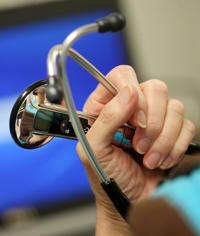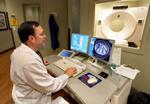Over the past decade — and even before that — urgent care centers proliferated across South Carolina and the United States.
In the Lowcountry, it's hard to drive a few miles without passing an urgent care clinic, often called a "doc in a box," even as two of the most high-profile urgent care chains in this state have been hit with federal fraud allegations in recent years. Most recently, on April 8, Doctors Care, which operates 50 urgent care clinics in South Carolina, was levied a $22.5 million federal fine to settle allegations of defrauding government insurance programs.
Doctors Care is only one of many providers operating in the urgent care space. But putting a precise number on how many urgent care offices dot our landscape turns out to be more complicated than you might guess. Urgent care centers aren't tracked the same way that hospitals are. Nevertheless, experts say it's safe to presume there are at least double the number of urgent care centers in this country as there are emergency departments.
On its surface, that sounds like a good thing. Urgent care centers are much more convenient than emergency rooms and are designed to handle non-life-threatening cases after hours and on weekends when other medical offices are closed. They rarely require patients to make an appointment and they're often able to offer flat fees to customers without health insurance. During the COVID-19 pandemic, urgent care centers have offered both testing and vaccinations.
But new research published by Health Affairs this month shows urgent care centers are costing the country's health care system a lot of money. In fact, the study determined that 37 urgent care visits were associated with only one fewer emergency room visit, according to national data spanning 2008 to 2019.
And while the average urgent care visit costs much less than the average ER visit — about $180 versus $1,600 — the volume of patients using urgent care more than made up for any savings to insurance companies and patients achieved through reduced ER use. In fact, "each $1,600 lower-acuity emergency department visit prevented was offset by a $6,000 increase in urgent care center costs," the study's authors found.
Dr. Ari Friedman, a physician affiliated with the University of Pennsylvania and one of the study's authors, explained in a Health Affairs podcast published in conjunction with the new research that the volume of people who are now using urgent care centers illustrates what's commonly called the "woodwork effect." Essentially, as prices go down and access goes up, "people come out of the woodwork."
And just because the study found that urgent care centers are costing the health care system considerable expense, it doesn't mean they're not serving a useful role, he said.
"Clearly, there’s value being delivered here," Friedman said.

Ebony Wallace, a certified medical assistant, performs a flu test at Roper St. Francis Express Care on James Island in 2018. New research published by Health Affairs found that 37 urgent care visits resulted in a reduction of one emergency room visit. File/Grace Beahm Alford/Staff
Robert Hartwig, a health care economist at the University of South Carolina, was not affiliated with the new research but said there are a few different ways to interpret its findings.
"My sense is that urgent care clinics are not in the business of trying to reduce ER visits, though they clearly do," Hartwig said. "Their location strategy is more akin to McDonald’s — located for easy access and convenience. Their operating model is about driving volume — and there’s nothing wrong with that so long as the legitimate medical needs of patients … are being met. I think we can all agree that hospital ERs are, by and large, among the most nightmarish and expensive of encounters with the health care delivery system that the public will ever encounter. For many reasons, they should be avoided whenever and wherever possible."
Furthermore, Hartwig said, the amount of money spent on urgent care should also be considered in terms of reduced costs related to primary health care visits and "traditional" medical center visits because urgent care is very likely reducing usage in those spaces, too.
"urgent" - Google News
April 19, 2021 at 07:00PM
https://ift.tt/3dvlKRr
Urgent care has proliferated across SC as new research raises questions about cost - Charleston Post Courier
"urgent" - Google News
https://ift.tt/2ya063o
https://ift.tt/3d7MC6X
urgent
Bagikan Berita Ini

















0 Response to "Urgent care has proliferated across SC as new research raises questions about cost - Charleston Post Courier"
Post a Comment